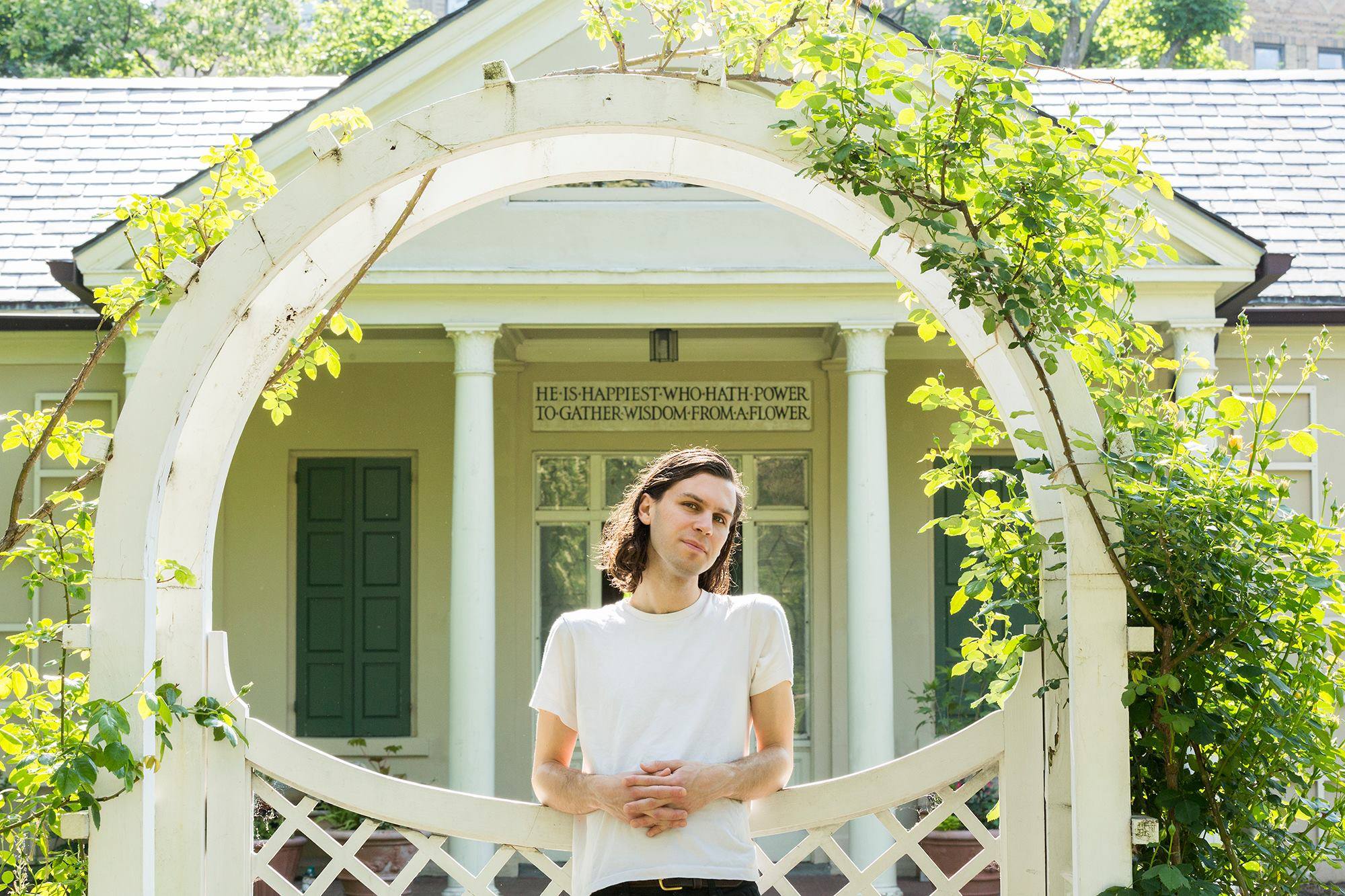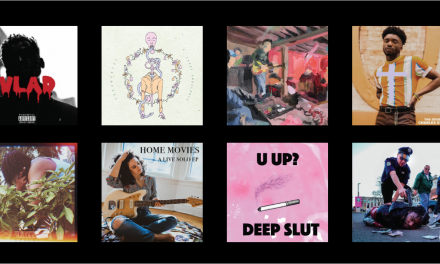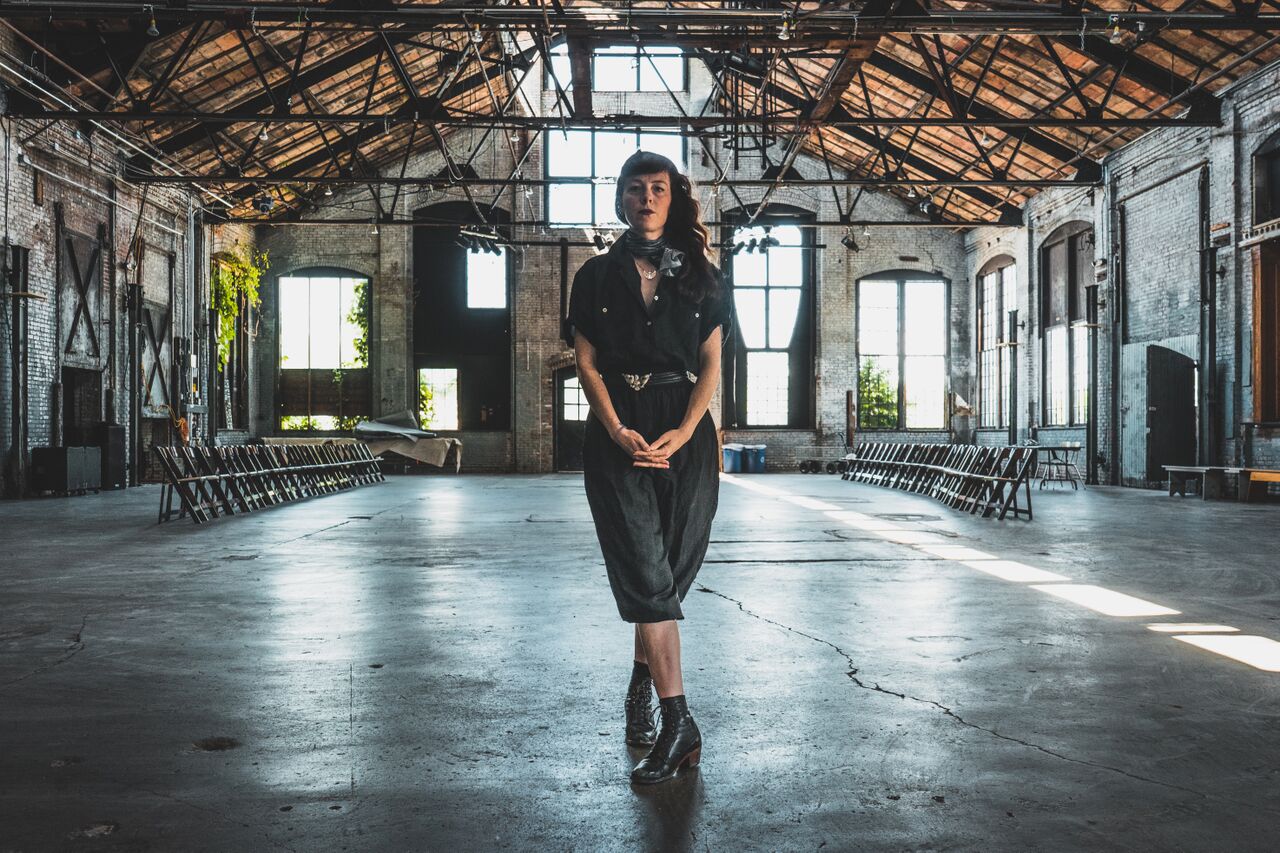“What can I tell you about the world? / Nothing I could tell you in a word.” Those lyrics are from the centerpiece of The Rose Gardener, Oliver Kalb’s fourth album under the moniker Bellows. It’s a record about the failings of idealism, the complexities of interpersonal relationships, and the frustrations of making art in an inherently capitalist industry. But rather than submitting himself to defeatism, Kalb comes to an understanding by the record’s end; he rediscovers the value in honest artistic creation.
Kalb started Bellows in 2010, a year after he got his first Macbook and initiated himself with Garageband and home recording. His first album, As If To Say I Hate Daylight (2011), was one of many lo-fi folk projects that came out of the era’s “bedroom pop” explosion. A New York City native, he attended Bard College for a few years before moving back to Brooklyn where he helped found The Epoch, a collective of NY artists who collaborated with one another and attempted to subvert the industry’s power structure via nontraditional organization.
Artists like Florist, Gabby’s World, Told Slant, Sharpless, and Small Wonder—many of which have members scattered throughout the Capital Region— spent time in The Epoch before its disbandment in late 2016, a few months after Kalb released his third Bellows album Fist & Palm. That record dealt with the dissolution of one friend in particular, but the circumstances surrounding the collective’s breakup (crumbling relationships, lost trust) presented him with an even larger conflict.
“The feeling of having had something that was this really beautiful, collaborative, vibrant community, and having it kind of not work out, was a bit of a reality check for me,” Kalb says during a phone call with The Collaborative.
Beyond just The Epoch, he was becoming disillusioned with the NYC indie scene in general. For the first time in his life, he was earning his entire living off of touring and making music, which added an entirely new element of stress to the already-ruthless nature of being a fledgling artist in the city.
“New York City can be a competitive environment to be an artist. There’s a lot of people trying to make a buck through music and just generally treat art in a competitive way. And I think a few years ago that hit ahead for me. . .”
It was during this period of isolation that Kalb developed the idea behind The Rose Gardener.
“It was actually a totally surrealistic image for me at first,” he says. “I wrote the title-track right when I moved into the apartment that I live in now. And I was kind of alone in this new space feeling a little weird about it. And I wrote this song with this repeated line about, “in the garden grows a bed of roses.” At first, it was almost like nonsense language for me. But it started to take on some kind of resonance. Like this image of a gardener trying to grow a rose in this winter environment.”
Shortly thereafter, he temporarily moved in with his brother in Woodstock, where he spent four months writing and recording the entire record in the dead of winter. It was there that the image of the rose gardener gained more nuance, eventually expanding into a four-part concept album.
“The idea is that this gardener is trying to cultivate this rose and care for the rose in this environment that’s hostile to its existence,” he says. “I felt like that metaphor of trying to cultivate something that’s really out of place and seems doomed to fail was sort of an analog to a lot of the other lyrics on the album about paranoia and displacement from the music scene.”
In the vinyl jacket he designed for the album, Kalb separates the 13 tracks into four chapters. The first is called ‘Gardening Gloveless.’ “I was imagining this part of the album as an introduction to this gardener, and specifically the gardener reaching his hand into a thorny rosebush and cutting his thumb. But recognizing that that is sort of what gardening is about.”
The second and third chapters are converses of one another. ‘Bellows Final Judgement’ encompasses some of the more aggressive songs on the record, which Kalb describe as having classic rock song narratives. “As in ‘I’m right, you’re wrong. These are the ways you blew it.’” The third is about “the shedding of judgment.” That’s where the song “What Can I Tell You About The World?” is placed, a moment of self-reflection in the form of a tender folk song that follows the most distortion-heavy track on the record, “Denouement.”
Each of those unique sections displays a different side of Bellows’ distinguished sound. His songs can either be quaint and fluttery, speckled with beautiful violin sweeps and supple electronic phrases. Or propped up by thumping basslines, splashed with frenetic acoustic drum fills and sudden bursts of electric guitar. He has a naturally pretty voice that’s fit for whispering over hushed strums or quadrupling and formatting into an oddly angelic mid-range during the hooks. On this record, he perfected the use of auto-tune, which he adopted on Fist & Palm during a period when he was listening to a lot of radio hip-hop and feeling like, “fuck all these twee bands.”
Ironically, auto-tune would promptly seep into the sound of “twee” contemporaries like (Sandy) Alex G, Trace Mountains, and Emily Yacina. But The Rose Gardener is one of the most fascinating instances where the completely inorganic effect feels not just complementary, but logical adjacent to the rural-esque folk numbers. The record’s final track, “Count Em Down,” is a seven-minute epic that concludes the fourth chapter and traverses the vast sonic ground Kalb has covered throughout his career. It’s quite possibly the best Bellows song he’s ever released.
“‘Count em down to zero’ is, like, accept that you’re gonna lose all your friends, no one’s gonna listen to your band, count it all down to zero,” he says of its main lyric. “But [sic] in the context of the second part, the more sort of pastoral section of the song, ‘Count em down to zero’ is about eliminating those sorts of worldly petty expectations from your life. . .Like, accepting zero as not a negative but actually, something to strive for. Like, casting off these sort of material ways of looking at yourself.”
For Kalb, zero is making music with the small group of friends who he trusts most (many of the contributors on this record are former Epoch members), viewing Bellows beyond “careerism and the mentality of doing art for personal gain,” and realizing that quantifying success in industry terms is damaging to a creative spirit.
“I’ve also come to realize that the types of forces that create hype and popularity within indie bands are so fleeting and based on such petty reads on people’s cultural significance, that applying those sets of standards to myself or using them as a barometer for my self-worth is a recipe for total self-hatred and being unhappy. And I feel like, on this album, I was able to finally divorce myself from thinking about Bellows in a careerist way, and I’ve been so much happier since I figured that out—but it took a really long time.” The Rose Gardener is out 2/22 via Topshelf Records. Bellows will kick off their tour with Another Michael at Albany DIY venue, Chateau, on 3/1 alongside Thelma and Hate Club.





